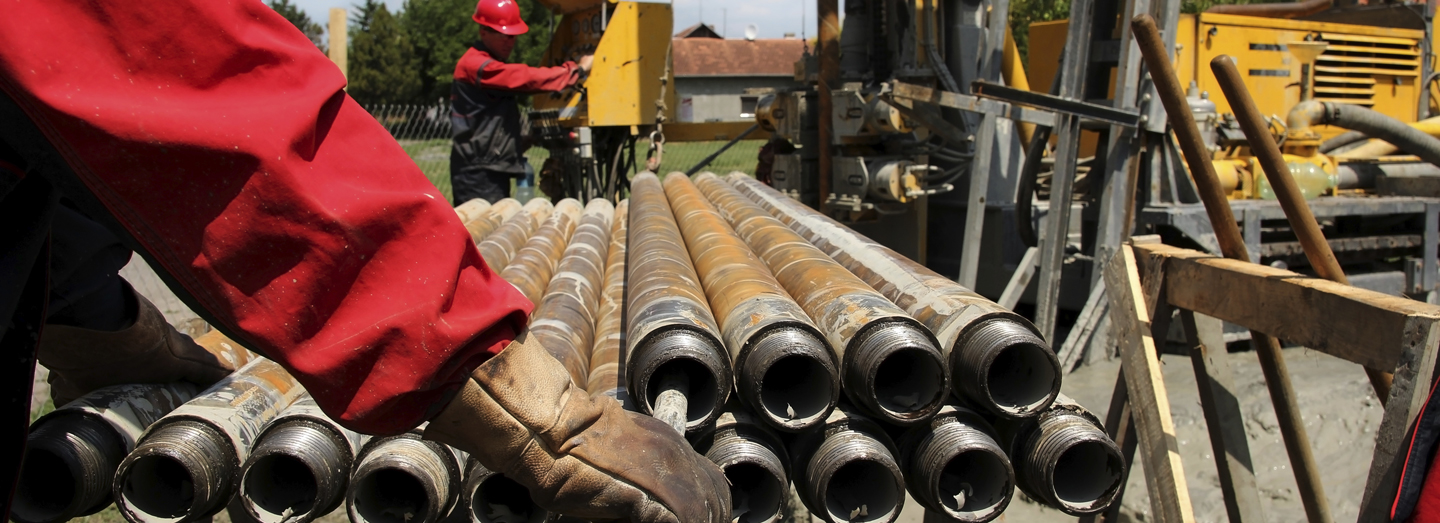
INSTRUCTOR-LED, LIVE, VIRTUAL FORMAT | Earn 10 PDHs
COURSE SCHEDULE:
**class closed**
To REGISTER: Click on the course date above
|
|
“An informative overview from drilling to completions to production and everything in between!”
“Great information in a compact course to help understand the nuts & bolts of the energy industry.”
“At last, all those acronyms and terms I’ve been hearing finally make sense!”
“This course has been like putting pieces of a puzzle together. I now feel I can communicate better with the engineers, as well as understanding the “how” and “why” of petroleum engineering.”
|
Petroleum Engineering is a dynamic and essential field that combines technical expertise with innovative problem-solving to address the challenges of energy production and resource management. It deals with the exploration, extraction and production of crude oil and natural gas. Petroleum Engineers play a vital role in meeting global energy demands by developing efficient and environmentally responsible methods for extracting hydrocarbons to minimize impact. They also analyze the economic value of existing gas or oil wells. It’s a safe guess to say that just about every petroleum, oil and gas company has a petroleum engineering department full of petroleum engineers. So…
* Would you benefit from an understandable, easy-to-follow overview of petroleum engineering?
* Would you like to be able to better interact with the petroleum engineers and geologists you work with?
* Would you like to better understand the petroleum exploration and production process?
If you answered YES to just one of these questions, this seminar is for you!
“What an excellent experience – the program was packed with valuable content, covering a wide range of topics to help understand petroleum engineering. It moved at a fast pace, which kept things engaging and ensured we covered a lot of material in a short time. What stood out most was how helpful and practical the course was – it really clarified complex concepts and gave me a solid foundation in the field.
I would highly recommend this course to anyone looking to deepen their knowledge of petroleum engineering.”
|
This live, online instructor-led course is designed to provide nontechnical support personnel an overview of the petroleum exploration/production process.
Participants will learn the main aspects of petroleum engineering including the terminology associated with the procedures and practices. They will be armed with information that increases their understanding of the process which will facilitate better communication with engineers and geologists.
It can be used as a companion/follow-up course to the PETROLEUM LIFE CYCLE: FROM ROCKS TO DRILL BITS seminar instructed by Kristie Ferguson as it focuses specifically on petroleum engineering aspects of the industry.
TARGET AUDIENCE: Oil, gas, and petroleum industry personnel needing an understanding of petroleum engineering in order to be more productive at their job, will find this seminar beneficial. Past participants have included:
- Engineering Techs and GeoTechs
- Landmen and Land Techs
- Attorneys
- Financial and Accounting Managers
- Regulatory Analysts
- Support Professionals
|
|
- Marketing/Sales Group
- HSE Personnel, Environmental Managers
- New Hires who may be coming from outside the industry
- IT Support and Managers
- Interns
- Human Resources Personnel
|
MEET YOUR INSTRUCTOR
 Mark Klins, PhD, PE
Mark Klins, PhD, PE
Consultant
Mgr Competency Development (ret) at Chevron
Danville, California
More Information About Your Instructor
|
COURSE CONTENT*:
- Brief review of the geology behind the process
- “Oil Well” video illustrating basic drilling and completion, as well as a blow-out
- On-shore drilling rigs overview: design considerations, pros and cons of different systems
- Off-shore rigs overview:drill ships, submersibles, floating platforms, barges, jack-ups
- Directional drilling tools and techniques: identification of conditions requiring a directional well, horizontal well productivity
- Well completions: completion methods-open hole, perforating, coring, discussion of oil well equipment (casing, tubing, review of cementing practices and procedures; radial flow)
- Reservoir stimulation: acidizing, hydraulic fracturing
- Reservoir drive mechanisms: dissolved gas, gas cap, water and combo drives; discussion of the impact of different drives on oil and gas production
- Improved recovery techniques: waterflooding; artificial lift options – gas lift, sucker rod pumps and electric submersible pumps
- Handling sub-surface fluids; removing water; separating liquid and gas; storing crude oil
- Well log analysis: SP and GR logs; shaliness; porosity measurement – equation calculation; density logs/sonic logs; determining saturation
*subject to change
LEARNING OUTCOMES:
* Gain an understanding of the requirements for an exploration project.
* Walk away knowing the tools, practices and terminology associated with drilling and completing a well.
* Obtain an understanding of offshore drilling equipment and practices.
* Learn how openhole logs and cores are used to evaluate a well.
* Understand the completion practices including hydraulic fracturing.
* Achieve a basic understanding of how to produce petroleum and calculate reserves.
* Introduction on how oil is produced from a well with artificial lift
* Understand how surface equipment is used to gather, process and store produced fluids.
* Gain an overall understanding of petroleum engineering.
PROGRAM HIGHLIGHTS:
* Case Studies and examples of real-world application will be given throughout the course.
* Class exercises reinforce the lectures.
* Material is well illustrated with field examples.
“This course was like turning on a light bulb in the dark! It will make my job so much better!”
“I have been in O&G services sales for 15 years and the drilling terminology was always a foreign language to me. Now the puzzle fits!”
“For someone having very little knowledge of the oil and gas industry, this course was easy to understand. I feel more knowledgeable.”
If you are needing an overall perspective of the petroleum engineering in order to become more knowledgeable, productive, and confident in your job…sign up for this course today.
|
|
COURSE DATES:
February 25 & 26, 2026 (Wed & Thurs)
April 29 & 30, 2026 (Wed & Thurs)
FORMAT:
INSTRUCTOR-LED, LIVE, ONLINE FORMAT:
ZOOM | Daily Morning & Afternoon Sessions
This event is being conducted entirely online. All attendees will connect and attend from their computer.
DAILY SESSION TIMES (Central):
9:30am-12:00pm and 1:00pm-3:30pm
The program runs for 2 days total, 5 hours each day (divided into am & pm sessions)
NOTE: # of participants is LIMITED – enroll early!
SIGN UP TODAY:
February 25 & 26, 2026| REGISTER HERE
* $1,495/person | BEST DEAL | expires January 21, 2026
* $1,695/person | EARLY BIRD | expires February 18, 2026
* $1,995/person | Registration fee after February 18, 2026
Last Day to Register: February 23, 2026
April 29 & 30, 2026| REGISTER HERE
* $1,495/person | BEST DEAL | expires March 18, 2026
* $1,695/person | EARLY BIRD | expires April 15, 2026
* $1,995/person | Registration fee after April 15, 2026
Last Day to Register: April 27, 2026
ACCREDITATION INFORMATION
Each participant attending the program will receive a signed University of Tulsa, Continuing Education for Science & Engineering Certificate of Completion showing number of professional development hours earned.
This course qualifies for:
- 10 PDHs (Professional Development Hours)
- 1.0 CEUs (Continuing Education Credits)
Associations (AAPL, Bar Associations, Accountancy Boards, etc.) may approve this course by submitting your Certificate of Completion and information about the program found on this webpage.
We ask our participants to self-report their attendance to their particular organization/association requiring continuing education. The organization typically just needs a copy of your certificate and info about the program which can be found on the website.
Did You Know…
your support through paid registration fees helps fund the activities of The University of Tulsa’s Engineering & Computer Science College (student organizations and activities, faculty development and other ECS events). On behalf of TU’s students and faculty, thank you for choosing The University of Tulsa’s Continuing Education for Science & Engineering as your training provider. We look forward to having you participate in the seminar!
|
Contact us about an exclusive educational training experience for your organization!In-Company Course Quote
 Mark Klins, PhD, PE
Mark Klins, PhD, PE